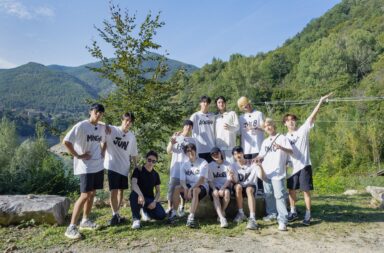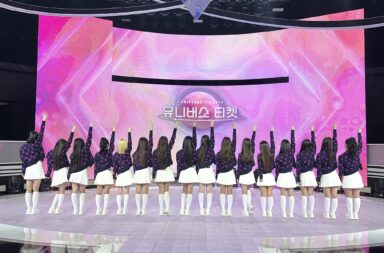
tvN’s Mama the Idol concept is fantastic: bring back former female idols and singers who have put aside their careers to focus on marriage and motherhood and form them into one supergroup. The idea is—without a doubt—promising, especially after the wave of nostalgia brought about by comebacks from second-generation acts like 2pm and Shinee last year. Moreover, to see an all-moms idol group is a first of its kind.
The line-up is exciting. There’s Park Jung-ah of Jewelry, Kahi of After School, ballad singer Byul (also known as the wife of comedian HaHa), rock vocalist-turned-actress Hyun Jyu-ni, Yang Eun-ji of Baby V.O.X. Re.V, and Sunye of the Wonder Girls. We haven’t seen any of these artists perform for around a decade (except for Kahi who guested in MMTG). It’s great to see these idol moms again and toy with the idea if they still got it. Unfortunately, the show has its major faults in execution and shows the glaring fixation on youth and singlehood on female idols.
The following review contains spoilers.
In eight hour-and-a-half episodes, Mama the Idol takes viewers on a journey from casting the moms to debuting them in a project idol group. Unlike other idol-producing reality shows, the moms don’t go through an audition. Instead, they go through a harsh “reality check” on the condition of their vocal and dance skills. They are graded “Good, Average, or Bad” by so-called masters, one of which is Kim Do-hoon, founder and CEO of RBW Entertainment, home to Purple Kiss, Onewe, Oneus, and Mamamoo. Yet, no one gets eliminated from the show based on the grade they get.
In the following episodes, we see the moms get trained and go through challenges in order to improve their skills. They also have a mission to gather at least 2,000 fans for their fancafe and 20,000 followers on their official social media. Otherwise, they won’t be able to debut.
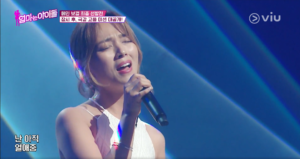
The show follows a familiar storyline that we see in Mnet’s reality shows like the Produce series, Girls Planet 999, and Street Woman Fighter. Too familiar that the show blatantly derives inspiration from Mnet’s evil editing and character arcs. With the dance and vocal challenges, the show tried to make the moms take on each other. Why the need to have them battle for pride for their former positions? It’s all for drama because the moms are too nice to each other. Seeing how the show is trying to create tension among these established ladies, who are in their late 30s and 40s, is just ridiculous.
Favoritism also contributed to the show’s poor editing. Prior to the premiere, there was much hype already going on about Sunye’s return as a singer. When she went through a reality check in the first episode, she got a “Good” for both her dance and vocal skills. Sunye’s singing prowess leaves no room for doubt, but it seems the panelists are more in favor of her because of her sweet soft nasal voice that is trendy these days. The compliments were a stark contrast to Jung-ah’s strong and powerful vocals, which they brand as unpopular to today’s audience, and Byul’s solid deep register, which developed when she became a mother. During the vocal challenge, it’s difficult not to dismiss that the comments being made were related to what Sunye is known for versus what she wants to be known for now. Are the idol moms supposed to sound the same as they were before or do they have to reinvent themselves to keep up with the times? It’s confusing as the comments can be contradictory from one episode to another. The show, so far, made everyone have to prove themselves again like rookies, but not Sunye nor Kahi in the dance challenge.
By the end of the show, the six participants debut as M.M.D. (shortened for Mama-idol) with the song, “WooAh HIP”, produced by Kim Do-hoon and Seo Young-bae. While the song captures the undeniable charisma of these veteran performers, the production, unfortunately, tries to fit them in present-day K-pop songs: heavily autotuned, messy choreography, and gibberish lyrics. What’s more frustrating is that this came after challenging them in different dance genres and stretching their vocal abilities.
Why do they have to fit into the mold to stay relevant? The masters kept on discussing the girl crush concept (which we have disastrously seen with GOT the Beat) but these women are not girls anymore. And they are not to impress anybody. Why can’t they have a song that doesn’t cater to a niche audience?
The average age of K-pop groups making their debut seems to be getting younger and younger. Korea JoongAng Daily recorded three 14-year old idols who made their debut last year. My Teenage Girl, MBC’s current reality survival show, features contestants as young as 11. With these girls going through puberty, they experience being criticized for their looks and talent. More so, they risk being sexualized just to ride with the misinterpreted strong and fierce “girl crush” concept.
Unfortunately for a superstar (no pun intended) group such as M.M.D., they fall victim to the industry’s fetishization of youthfulness. If you don’t try to fit into the mold, you are old. You are dated.
This will not be the case if the show focused on the idol moms’ individual strengths. Case in point are Hangout with Yoo’s successful launches of the Refund Sisters (Uhm Jung-hwa, Lee Hyo-ri, Jessi, and Hwasa), SSAK3 (with Rain and Lee Hyo-ri), and MSG Wannabe. All these project groups enjoyed domestic success. Mama the Idol could have just rode on the wave of nostalgia as 90s vibes are coming back anyway. Plus with the massive following (by the sixth episode, they had 39,000 Instagram followers and 12,000 fan club members), they would have easily been on top of the charts.
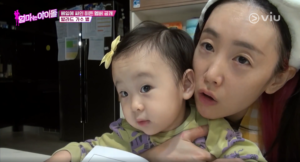
Leaving their once-glamorous celebrity lives, all of the participants have become full-time housewives and hands-on mothers. We see them cry together in almost every episode (as they say, you get more emotional when you become a mother), and it makes us realize how women have so much to give up. It’s unfair compared to men singers and entertainers who can still enjoy flourishing careers in their fifties. It can be argued that these women could have made the choice of giving up their careers, but probably they couldn’t because the industry can be cruel and demanding.
While the show is a missed opportunity, Mama the Idol is a show that can tug everyone’s heartstrings. Some of the notable episodes were when the idol moms invited their best friends for a concert in episode 6 and when they had an overnight training camp in episode 7. Viewers were treated down memory lane with the special appearances of ballad singer Na Yoong-won (for Byul’s stage), JYP and Sunmi (for Sunye), and the whole of Jewelry (for Park Jung-ah). Personally, it was such a delight to see Jewelry reunite on stage together, and coincidentally their performance marks their 20th year anniversary.
The overnight training camp was enjoyable as we see the idol moms not as moms or idols, but as girls who are enjoying sleepovers with their friends. This episode was also one of the most hilarious as the moms decide who should be the leader. Kahi, Sunye, and Jung-ah were all respected leaders in the group, but then Eun-ji spits out, “The leader should have big breasts”.
The cast’s candor, friendship, and dynamic personalities make the show so charming. While there are a lot of tears, there are also a lot of laughs as the moms talk casually about making babies throughout the episodes. Viewers also got to see a new side of the idol moms. Who knew Eun-ji could be so hilarious? Her adlibs, along with Byul’s, are some of the best moments in the show. Kahi, behind her intimidating aura, works hard in everything that she does but she also is so caring to help others learn the choreography. Jung-ah radiates so much warmth and support.
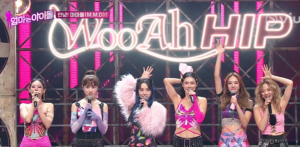
It’s a pity that the project group is too short-lived. It is uncertain if there will be a second season with the same cast or a different set of mothers. If there ever will be one, then one can only hope that the K-pop industry would be more welcoming for women to embrace age, motherhood, and their careers at the same time. After all, moms can do it all.
(Images via tvN, Viu. KoreaJoongAng Daily. YouTube [1][2])
